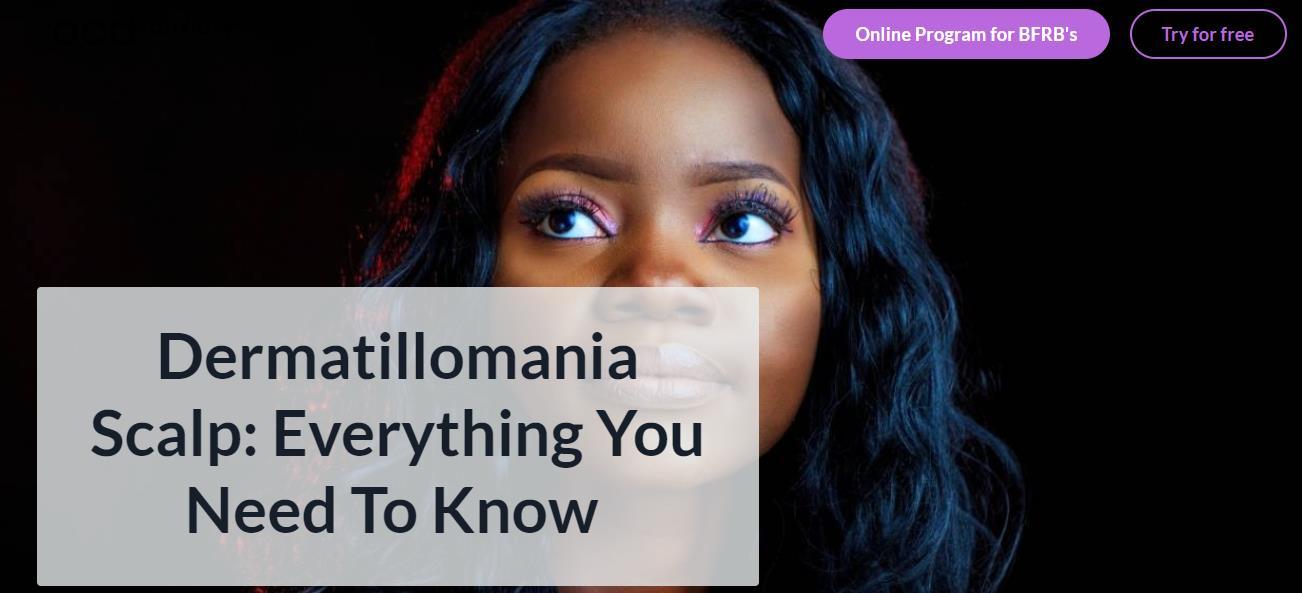Understanding and Treating Dermatillomania and Related Conditions

Dermatillomania, also known as excoriation disorder, is a condition characterized by repetitive skin picking that can result in tissue damage. When focused on the scalp, this behavior can lead to bald patches, scabs, and infections. Individuals may experience significant distress and impairment in social or occupational functioning due to the visible damage caused by this compulsive behavior.
Trichotillomania, often referred to as trich, is another body-focused repetitive behavior where individuals have a compulsive urge to pull out their own hair, resulting in noticeable hair loss. Symptoms of trich include:
- Repeatedly pulling out hair from the scalp, eyebrows, eyelashes, or other parts of the body.
- An increasing sense of tension before pulling or when trying to resist the urge.
- Pleasure, relief, or gratification when pulling out hair.
- Significant hair loss, bald patches, or thinning hair.
- Attempts to hide or camouflage the hair loss with hairstyles, wigs, or clothing.
Excoriation Disorder Treatment
Treating excoriation disorder often involves a combination of therapy, medication, and self-care strategies. The most effective treatments include:
- Cognitive Behavioral Therapy (CBT): This is the most commonly recommended treatment for excoriation disorder. CBT helps individuals identify and change the thoughts and behaviors that contribute to their skin picking. Habit reversal training (HRT), a type of CBT, is particularly effective.
- Medication: Certain medications, such as selective serotonin reuptake inhibitors (SSRIs), can help reduce the urge to pick and improve overall mood.
- Mindfulness and Stress Management: Learning mindfulness techniques and stress management strategies can help individuals manage the anxiety and stress that often trigger skin picking episodes.
- Support Groups: Joining support groups where individuals can share their experiences and coping strategies can provide emotional support and reduce feelings of isolation.
- Skin Care: Proper skin care can help minimize damage and promote healing. Consulting a dermatologist for advice on caring for the affected areas is often beneficial.
Anxiety often plays a significant role in dermatillomania and other body-focused repetitive behaviors. The act of skin picking can be a way to cope with or reduce feelings of anxiety, even though it ultimately exacerbates the problem. Managing skin picking anxiety involves:
- Identifying Triggers: Recognizing situations, emotions, or thoughts that trigger skin picking can help in developing effective coping strategies.
- Relaxation Techniques: Practicing relaxation techniques such as deep breathing, progressive muscle relaxation, or yoga can reduce overall anxiety levels.
- Routine and Structure: Establishing a daily routine and creating a structured environment can provide a sense of control and reduce opportunities for skin picking.
- Professional Help: Seeking help from a mental health professional who specializes in anxiety and body-focused repetitive behaviors can provide tailored treatment and support.
Understanding dermatillomania, trichotillomania, and related conditions is the first step towards managing and overcoming these challenging behaviors. Through a combination of therapy, medication, self-care, and support, individuals can reduce the impact of these disorders on their lives and improve their overall well-being. If you or someone you know is struggling with these behaviors, reaching out to a healthcare professional can provide the necessary guidance and support.
- Art
- Causes
- Crafts
- Dance
- Drinks
- Film
- Fitness
- Food
- Juegos
- Gardening
- Health
- Home
- Literature
- Music
- Networking
- Other
- Party
- Religion
- Shopping
- Sports
- Theater
- Wellness


